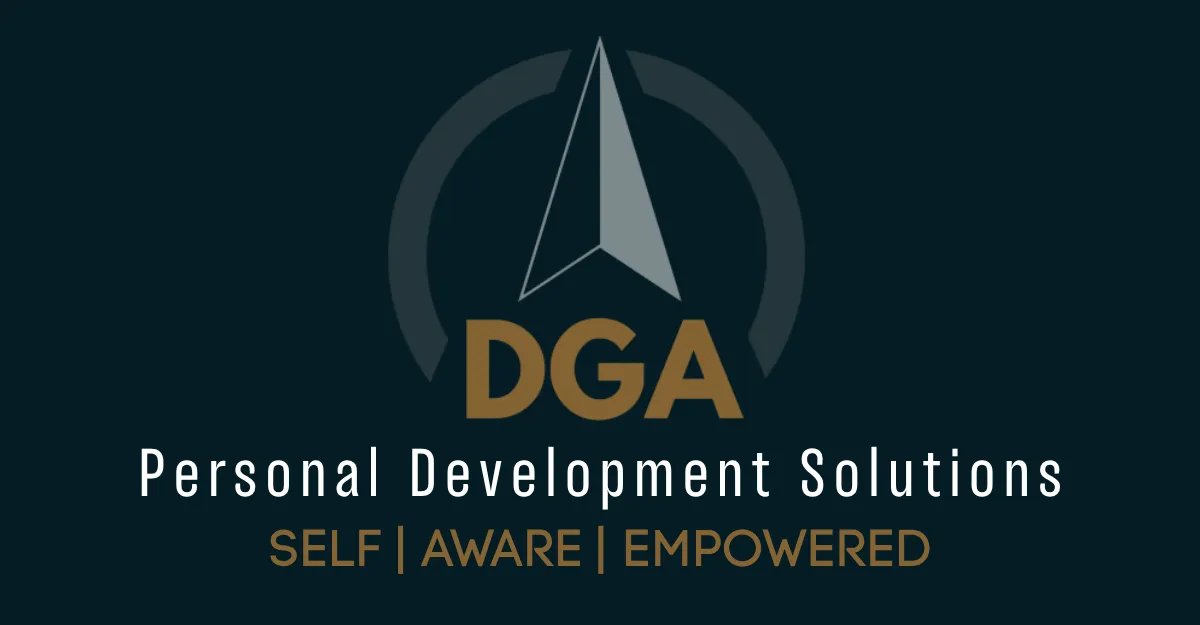The Next Move

The 3 Behaviors That Sabotage Sales (And How to Overcome Them)
Ever feel like you’re running on a treadmill? You’re putting in the effort—making calls, sending emails, going to networking events—but you’re not actually getting anywhere closer to your goals. You see others closing deals and wonder, "What am I missing?"
If that sounds familiar, I want you to take a deep breath. It’s not about the fancy new script or the latest lead-gen software. After 40 years in this business, I’ve seen that the biggest hurdles aren’t out there in the market; they’re inside our own heads.
Success isn't about becoming someone you're not. It's about getting out of your own way so your natural talents can shine. Today, let’s talk about the three most common internal saboteurs I see in new salespeople and, more importantly, how you can gently but firmly show them the door.
Saboteur #1: The Whispers of Fear and Doubt
Fear is a powerful force. In sales, it often shows up as its quieter, more insidious cousin: doubt. It’s the little voice that whispers, “What if they say no?” or “Am I really cut out for this?” or the big one, “I’m bothering them.”
This doubt paralyzes you. It makes you hesitate before picking up the phone. It makes your voice tremble just a little when you state your price. It causes you to over-prepare for a simple meeting and under-prepare for the real, human conversation that needs to happen. The result? You come across as uncertain, and if you don’t believe in what you’re offering, why should your prospect?
How to Overcome It:
The antidote to fear isn't fake bravado; it's clarity and contribution.
First, get crystal clear on the value you provide. You aren't just selling a product or a service; you are solving a problem. For realtors, you're not selling a house; you're helping a family find a home where they’ll build memories. When you shift your mindset from "selling" to "serving," the fear of rejection starts to lose its power. You’re not an interruption; you’re a helper.
Second, understand your own unique style. Maybe you’re not the high-energy, back-slapping salesperson you see in movies. And that's okay. Perhaps your strength is your ability to listen deeply, or your meticulous attention to detail, or your calming presence. Tools like the DISC assessment can help you identify these innate gifts. When you lean into who you are instead of trying to be someone else, your confidence becomes authentic and unshakable.
Saboteur #2: The Chaos of Unfocused Action
The modern world is a firehose of distractions. Social media notifications, a never-ending inbox, the "urgent" task that pops up out of nowhere—it's easy to spend an entire day being busy without being productive.
A lack of focus is like trying to boil the ocean. You splash around, create a lot of steam, but nothing ever actually cooks. For a salesperson, this looks like chasing every shiny new lead, switching between tasks every five minutes, and having a to-do list a mile long with no real priorities. You end the day exhausted but with no meaningful progress on the activities that actually generate revenue.
How to Overcome It:
The solution is to trade chaos for discipline and direction. This is where Key Performance Indicators (KPIs) become your best friend.
Don't just set a goal of "sell more." Break it down into the specific, controllable actions that lead to a sale. Your KPIs are the daily and weekly commitments you make to yourself. They aren't about the outcome (which you can't always control), but about the effort (which you can).
A new realtor's KPIs might look like this:
* Make 15 new contacts per day.
* Have 3 meaningful conversations per day.
* Add 5 people to my database each day.
* Send 2 personal, handwritten notes per week.
These numbers are your guardrails. They keep you focused on the handful of activities that truly move the needle. When you’re tempted to scroll through Instagram, you can look at your KPIs and ask, "Is this helping me have a meaningful conversation today?" This simple framework brings immense clarity and transforms your frantic energy into focused power.
Saboteur #3: The Heavy Weight of Procrastination
Procrastination is often misunderstood. We think of it as laziness, but more often than not, it’s a symptom of feeling overwhelmed. The task ahead feels so big, so daunting, that we simply don't know where to start. So we don't. We put it off. We file paperwork, clean our desk, or research a new CRM—anything to avoid the one thing we know we should be doing.
That one thing is usually prospecting. Picking up that 500-pound phone.
Procrastination doesn't just delay your success; it drains your energy. The mental weight of knowing you should be doing something is often more exhausting than just doing the thing itself. It’s a quiet killer of momentum and morale.
How to Overcome It:
The most effective way to beat procrastination is with accountability and small wins.
First, find an accountability partner. This could be a colleague, a mentor, or a coach. It needs to be someone you trust and respect, who will give you honest encouragement, not just let you off the hook. A simple 15-minute check-in call once a week can work wonders. Just knowing that someone is going to ask, "Did you do what you said you were going to do?" provides the external motivation we sometimes need to get moving.
Second, break it down. Don’t think about making "50 cold calls." That's overwhelming. Instead, commit to making one call. Just one. After you do that one, commit to one more. Celebrate these tiny victories. This approach, sometimes called the "two-minute rule," builds momentum. Action creates more action. By starting small, you prove to yourself that the task isn't as scary as you thought, and soon you'll find yourself in a state of productive flow.
It Starts From the Inside Out
Fear, a lack of focus, and procrastination aren't weaknesses; they are human. Every successful person you admire has faced them. The difference is that they learned to recognize these saboteurs and developed simple systems to manage them.
They learned that confidence comes from understanding your value. They learned that productivity comes from disciplined focus on the vital few. And they learned that action comes from accountability and taking that first small step.
You have a unique set of gifts waiting to be shared. The world doesn't need another generic salesperson. It needs you—with your specific talents, your genuine personality, and your desire to serve. The first step is to get out of your own way.
If you’re tired of running on that treadmill and ready to build a business that feels authentic and powerful, let’s talk. A simple conversation can bring a lot of clarity. Click this Link to book a no-obligation discovery call. Let's uncover what makes you brilliant.
The Realtor's Compass

The 3 Behaviors That Sabotage Sales (And How to Overcome Them)
Ever feel like you’re running on a treadmill? You’re putting in the effort—making calls, sending emails, going to networking events—but you’re not actually getting anywhere closer to your goals. You see others closing deals and wonder, "What am I missing?"
If that sounds familiar, I want you to take a deep breath. It’s not about the fancy new script or the latest lead-gen software. After 40 years in this business, I’ve seen that the biggest hurdles aren’t out there in the market; they’re inside our own heads.
Success isn't about becoming someone you're not. It's about getting out of your own way so your natural talents can shine. Today, let’s talk about the three most common internal saboteurs I see in new salespeople and, more importantly, how you can gently but firmly show them the door.
Saboteur #1: The Whispers of Fear and Doubt
Fear is a powerful force. In sales, it often shows up as its quieter, more insidious cousin: doubt. It’s the little voice that whispers, “What if they say no?” or “Am I really cut out for this?” or the big one, “I’m bothering them.”
This doubt paralyzes you. It makes you hesitate before picking up the phone. It makes your voice tremble just a little when you state your price. It causes you to over-prepare for a simple meeting and under-prepare for the real, human conversation that needs to happen. The result? You come across as uncertain, and if you don’t believe in what you’re offering, why should your prospect?
How to Overcome It:
The antidote to fear isn't fake bravado; it's clarity and contribution.
First, get crystal clear on the value you provide. You aren't just selling a product or a service; you are solving a problem. For realtors, you're not selling a house; you're helping a family find a home where they’ll build memories. When you shift your mindset from "selling" to "serving," the fear of rejection starts to lose its power. You’re not an interruption; you’re a helper.
Second, understand your own unique style. Maybe you’re not the high-energy, back-slapping salesperson you see in movies. And that's okay. Perhaps your strength is your ability to listen deeply, or your meticulous attention to detail, or your calming presence. Tools like the DISC assessment can help you identify these innate gifts. When you lean into who you are instead of trying to be someone else, your confidence becomes authentic and unshakable.
Saboteur #2: The Chaos of Unfocused Action
The modern world is a firehose of distractions. Social media notifications, a never-ending inbox, the "urgent" task that pops up out of nowhere—it's easy to spend an entire day being busy without being productive.
A lack of focus is like trying to boil the ocean. You splash around, create a lot of steam, but nothing ever actually cooks. For a salesperson, this looks like chasing every shiny new lead, switching between tasks every five minutes, and having a to-do list a mile long with no real priorities. You end the day exhausted but with no meaningful progress on the activities that actually generate revenue.
How to Overcome It:
The solution is to trade chaos for discipline and direction. This is where Key Performance Indicators (KPIs) become your best friend.
Don't just set a goal of "sell more." Break it down into the specific, controllable actions that lead to a sale. Your KPIs are the daily and weekly commitments you make to yourself. They aren't about the outcome (which you can't always control), but about the effort (which you can).
A new realtor's KPIs might look like this:
* Make 15 new contacts per day.
* Have 3 meaningful conversations per day.
* Add 5 people to my database each day.
* Send 2 personal, handwritten notes per week.
These numbers are your guardrails. They keep you focused on the handful of activities that truly move the needle. When you’re tempted to scroll through Instagram, you can look at your KPIs and ask, "Is this helping me have a meaningful conversation today?" This simple framework brings immense clarity and transforms your frantic energy into focused power.
Saboteur #3: The Heavy Weight of Procrastination
Procrastination is often misunderstood. We think of it as laziness, but more often than not, it’s a symptom of feeling overwhelmed. The task ahead feels so big, so daunting, that we simply don't know where to start. So we don't. We put it off. We file paperwork, clean our desk, or research a new CRM—anything to avoid the one thing we know we should be doing.
That one thing is usually prospecting. Picking up that 500-pound phone.
Procrastination doesn't just delay your success; it drains your energy. The mental weight of knowing you should be doing something is often more exhausting than just doing the thing itself. It’s a quiet killer of momentum and morale.
How to Overcome It:
The most effective way to beat procrastination is with accountability and small wins.
First, find an accountability partner. This could be a colleague, a mentor, or a coach. It needs to be someone you trust and respect, who will give you honest encouragement, not just let you off the hook. A simple 15-minute check-in call once a week can work wonders. Just knowing that someone is going to ask, "Did you do what you said you were going to do?" provides the external motivation we sometimes need to get moving.
Second, break it down. Don’t think about making "50 cold calls." That's overwhelming. Instead, commit to making one call. Just one. After you do that one, commit to one more. Celebrate these tiny victories. This approach, sometimes called the "two-minute rule," builds momentum. Action creates more action. By starting small, you prove to yourself that the task isn't as scary as you thought, and soon you'll find yourself in a state of productive flow.
It Starts From the Inside Out
Fear, a lack of focus, and procrastination aren't weaknesses; they are human. Every successful person you admire has faced them. The difference is that they learned to recognize these saboteurs and developed simple systems to manage them.
They learned that confidence comes from understanding your value. They learned that productivity comes from disciplined focus on the vital few. And they learned that action comes from accountability and taking that first small step.
You have a unique set of gifts waiting to be shared. The world doesn't need another generic salesperson. It needs you—with your specific talents, your genuine personality, and your desire to serve. The first step is to get out of your own way.
If you’re tired of running on that treadmill and ready to build a business that feels authentic and powerful, let’s talk. A simple conversation can bring a lot of clarity. Click this Link to book a no-obligation discovery call. Let's uncover what makes you brilliant.


